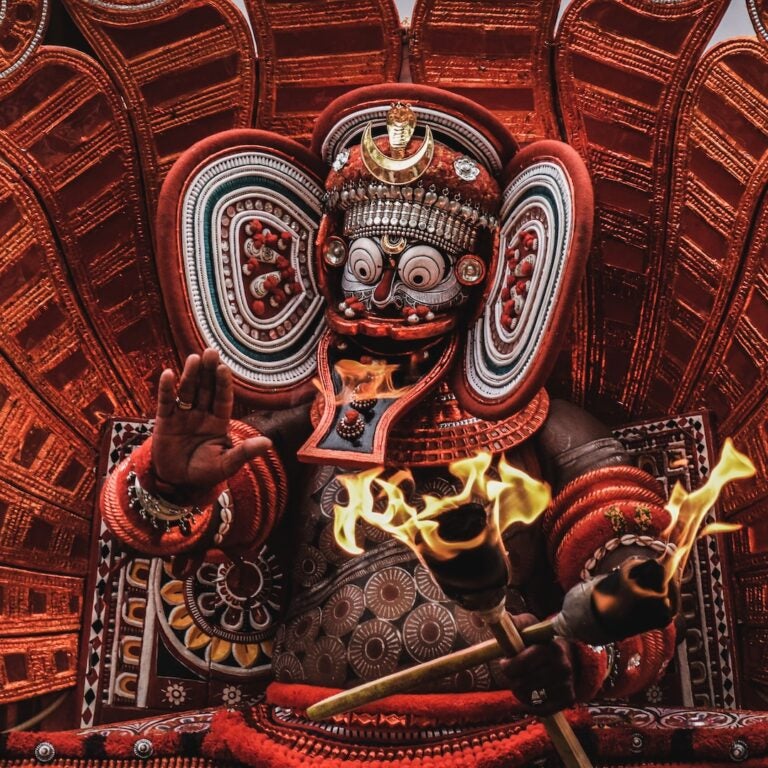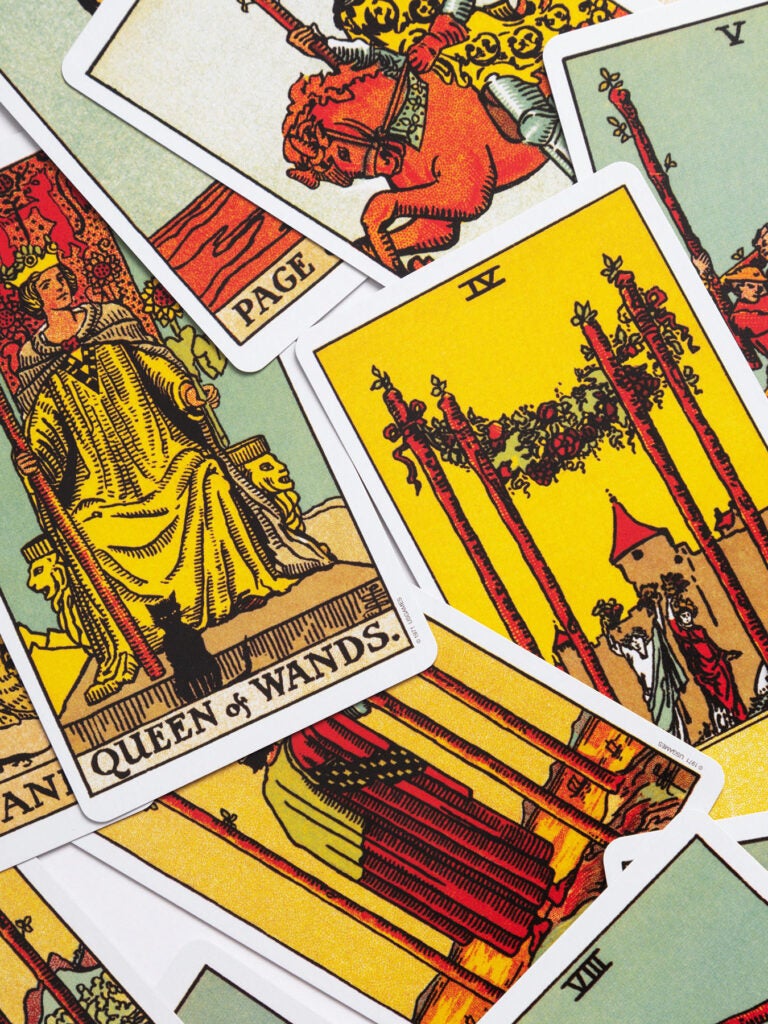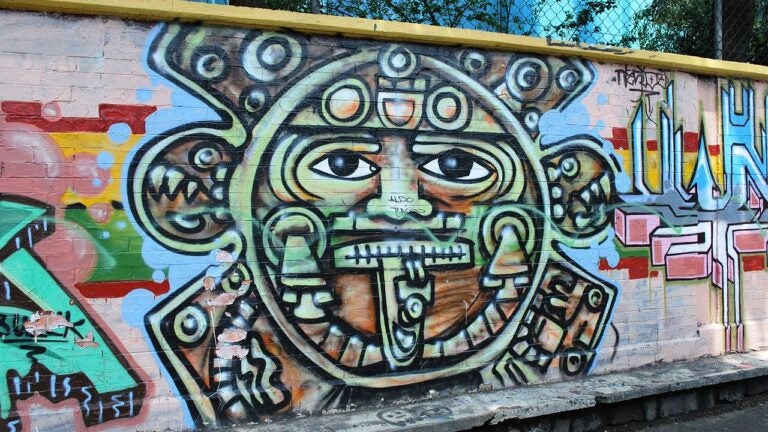Interdisciplinary Minor
USC’s Minor in Folklore and Popular Culture provides an academic foundation for students interested in the many genres in the field including folktales, myths, legends, proverbs, jokes, games, folk medicine, and folk and indigenous musical traditions, from around the world. Through interdisciplinary course work, students will learn techniques of collecting, analyzing, and interpreting the traditional expressive culture of diverse groups. Students will analyze the interrelationships between folklore and national, regional, and ethnic identities.
After becoming acquainted with methods of interpreting different forms of folklore, students will see how value systems are reflected in the data, so that students understand the ideological underpinnings of group formation, group identity, conflict, and strategies for resolution. By focusing on everday expressive culture, and the tension between the individual and myriad groups to which they belong, folklore provides yet another window into understanding how individuals function in complex societies. Since the field is historically grounded and culturally comparative, folklore provides important perspectives on the human condition.
To enroll in the Minor in Folklore and Popular Culture, please email Kim Vinson in the Anthropology Department to arrange an appointment. She can enroll you directly.


Minor Requirements
Core Course: Forms of Folklore
The core course ANTH 333- Forms of Folklore aims to introduce students to the wide variety of folklore from around the world (and from their own lives), and to the basic methods of studying such material.
Folklore is an integral part of being human. The discipline of Folklore studies the unofficial, the spoken, and the traditional forms of expressed culture, such as legends (including urban ones), mythology, folk music, jokes, festivals, and more. It is often contrasted with the printed word, yet the recent growth of the internet and digital communications has brought the realm of popular culture increasingly closer to folklore as well. This course aims to lay the basis for students’ understandings of the theories and techniques of understanding folklore and popular culture.
Students will be introduced to theory, research and fieldwork, and for a final project will submit a short collection and analysis of folklore items. Students will also read and report on a re-telling of folklore in a popular book or film of their choice.
The rest of the minor may be satisfied by taking one lower-division course and three upper-division courses. See below fore options.
Lower Division Courses
One lower level course is required to complete the minor. The following list of lower-division courses are available:
AMST 285 African American Popular Culture
ANTH 101 Body, Mind and Healing (4) The body, illness and healing from a cultural perspective, including comparative studies of folk healing systems, curing rituals and Western biomedical practices.
ANTH 140 MesoAmerican Cosmovision and Culture
ANTH 263g Exploring Culture Through Film (4, FaSpSm) Concepts of social anthropology using filmic representations of societies throughout the world in contrast to written ethnography.
ANTH 273g Shamans, Spirits and Ancestors: Non-Western Religious Traditions (4, Fa) An intensive study of local systems of belief and knowledge in selected societies in the Pacific, Asia, Africa, the Caribbean and Latin America with emphasis on ideas of the spirit world.
CLAS 280g Classical Mythology (4, FaSp) Origin, development, and transmission of mythology in Greek and Latin literature, with parallels from other traditions.
COMM 206 Communication and Culture (4) Examines cultural institutions, ideologies, artifacts, and productions; role of culture in everyday life; cultural studies as methodology; culture and power.
History 271: Telling Native American Stories
Upper Division Courses
Three upper-division courses are required to complete the major. These upper-division courses include:
AMST 395: African American Humor and Culture (4)
AMST 330: Black Music and the Political Imagination
ANTH 301: The Performance of Healing
ANTH 332: Anthropology and Narrative Medicine
ANTH 360 Symbolic Anthropology (4, Fa) The role of symbols in the evolution of culture; symbolic aspects of myth, ritual, and social life. Prerequisite: sophomore standing.
ANTH 370: Family and Kinship in Cross-Cultural Perspective (4, Sp)
ANTH 372 Interpretation of Myth and Narrative (4, Fa) Oral narratives from non-Western cultures; communications about deeply-held beliefs, psychological tensions, social problems, and the structure of the mind.
ANTH 373: Magic, Witchcraft, and Healing
ANTH 409: Indigenous Languages in the Contemporary World
Anth 490x Directed Research (2-8, max 8, FaSpSm) Individual research and readings.
CLAS 380 Approaches to Myth (4) Advanced study of uses and interpretations of myth. Approaches include myth and ritual; psychology; gender; myth in literature, film and art. Recommended preparation: CLAS 280.
CLAS 325: Ancient Epic: Representative epics of the Greek and Roman world; development of the character of the hero; later influences.
COLT 311: The Epic (4)
COLT 312: Heroes, Myths, and Legends in Literature and the Arts (4) Study of transformations of characters and themes from myth, legend or fairytale (Oedipus, Antigone, Faust, Don Juan, Cinderella, Comic and Tragic Twins, Hero and Monster).
COLT 365 Literature and Popular Culture (4) Study of mass-reproduced verbal and visual art forms, such as graphic novels, comics, animation, popular music, video, graffiti, advertising.
COMM 384 Interpreting Popular Culture (4) Popular culture as an indicator of cultural values, a producer and reflection of cultural meaning, and a means of communication; theory and case studies.
COMM 440 Music as Communication (4) Examines music’s unique characteristics as a communicative form and the cultural, economic, political and social influences in music interpretation and production
GERM 346 German Folklore and Popular Culture (4) Survey and analysis of folklore and cultural phenomena, including tales, legends, and myths; folk and popular music; beliefs and customs. In English.
JS 378: Jewish Magic in the Ancient World
MDA-330: The Armenian Heritage: History, Arts, and Culture (4, FaSp) A multidisciplinary exploration of the Armenian cultural heritage through the ages – folklore, traditions, religious practices, literature, architecture, painting, sculpture, music, theatre, film and dance.
MUSC-444: American Roots Music: History and Culture
MUHL 302: Musical Cultures of the World
POSC 441m Cultural Diversity and the Law (4) Jurisprudential approach to the study of cultural differences. Consideration of circumstances under which law should accommodate cultural diversity in the United States and abroad.
SPAN 385: The Culture of Food in Hispanic Los Angeles
